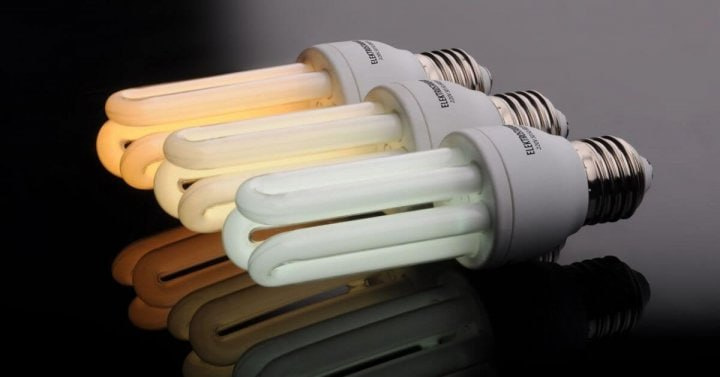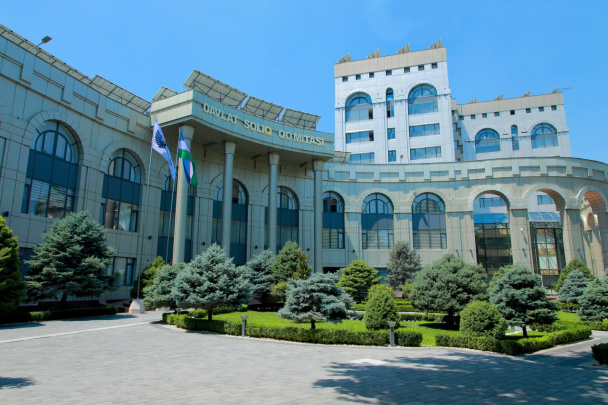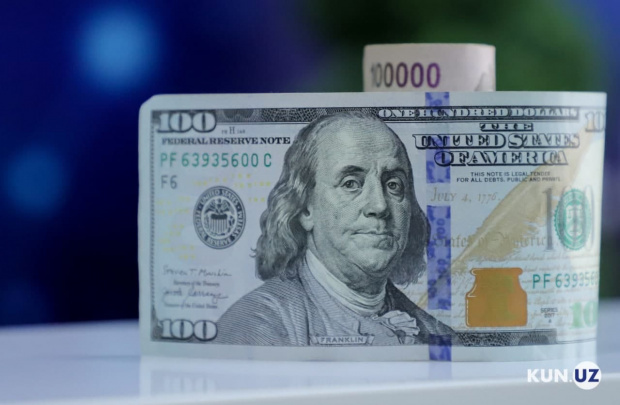Tax Committee: The draft presidential decree caused a wide public outcry

On November 5, a draft presidential decree “On amending the Regulation on Currency control on export-import transactions” was published on the portal for discussing draft normative-legal acts.
“In recent days, the document caused a wide public response on social networks and electronic media. In particular, it was reported that the 10% and 20% fines for overdue debts on foreign trade operations are planned to increase to 40% and 60%,” the State Tax Committee said.
It should be recalled that earlier, a well-known economist Yuliy Yusupov expressed his opinion about illogical taxes, which have recently significantly interfered with the work of businessmen. He believes that the current tax policy is undermining business and the confidence of entrepreneurs in the state.
The press service of the tax committee said that the draft document provides for a change in terms, not in fines.
“According to the old order, the first 180 days is the so-called sparing period without penalty. That is, if an entrepreneur sends his goods abroad and receives money for it within 180 days after dispatch, there can be no question of fines. If money is also not received within the next 180 days, the fine will be 10% of the receivables, the fine of 20% for the next 180 days and the penalty of 70% for the last 180 days. In total, the term of the foreign trade operation is 2 years,” the tax authorities said.
The new draft decree envisages only to reduce this period by six months and redistribute the percentage of fines. The first 180 days are to be left as a sparing period without penalty. For the second half year, it is planned to introduce a 40% penalty and the next half year – 60% of the total debt. That is to say, when adding the first and the second cases, the same percentage of fines is obtained.
In addition, unlike in foreign countries, Uzbekistan has a practice of returning a fine from the state budget if, within 90 days after the fine application, foreign currency funds are received or imported into the republic and goods are registered (a presidential decree of October 24, 2019).
“Consider a specific example of withdrawing money from a country. The company “Universal Invest Service” (name changed in order to maintain tax secrecy) concluded an import agreement for the supply of goods from abroad. On January 1, 2019, the receivable for this operation was already $450,000. Despite this, in 2019, the company again entered into 18 import contracts worth $120,000, sending money abroad. Consequently, as of October 1 of this year, the receivable is already $570,000. The outflow of foreign currency from the country and the growth of overdue receivables are often associated with the transfer of funds to doubtful offshore zones. If in 2018 a little more than 1,300 such transfers were made, then over the period from January to August this year, their number increased to 1,445”, the STC noted.
The press service said that the draft decree does not include transactions related to the purchase or sale of equipment.
“Considering that more than 45% of all imports come from equipment, it is important for entrepreneurs to know that there are no strict deadlines and sanctions associated with the sale and purchase of equipment for foreign trade operations. This is regulated depending on the terms of equipment manufacturing individually by the seller and the buyer directly, as participants in a specific foreign trade operation,” the tax authorities said.
According to representatives of the tax committee, the practice of combating under-receipt of foreign currency funds is more stringent throughout the world than in Uzbekistan. Such countries include, for example, the CIS countries – Russia, Belarus, Ukraine and Kazakhstan. In particular, in Russia and Kazakhstan, even criminal liability is provided for overdue receivables. At the same time, six months later, the tax authorities recover a fine from the counterparty from 75% to 100% of the amount owed.
“In general, this measure of responsibility will be applied only in relation to about 8% of the total number of participants in foreign trade operations – 17,500. Even if it is introduced, it will only streamline their payment discipline,” the STC concluded.
Recommended
List of streets and intersections being repaired in Tashkent published
SOCIETY | 19:12 / 16.05.2024
Uzbekistan's flag flies high on Oceania's tallest volcano
SOCIETY | 17:54 / 15.05.2024
New tariffs to be introduced in Tashkent public transport
SOCIETY | 14:55 / 05.05.2023
Onix and Tracker cars withdrawn from sale
BUSINESS | 10:20 / 05.05.2023
Latest news
-
“I chose to study in Abu Dhabi for its safety” – NYUAD’s full scholarship winner Mukhlisa Mamatova
SOCIETY | 20:06
-
Former cadastral officials caught accepting $10,000 bribe in land reclassification scheme
SOCIETY | 19:36
-
Uzbekistan becomes shareholder in Eurasian Development Bank with 10% stake
SOCIETY | 18:50
-
Leapmotor questions findings of technical inspection, seeks re-examination after certification halt in Uzbekistan
SOCIETY | 18:39
Related News

17:44 / 04.09.2024
Entrepreneurs’ surcharge for excess electricity and gas consumption to be reduced tenfold

15:16 / 21.06.2024
Consumers who install energy-saving devices to receive 15% discount on current tariff for 3 years

17:46 / 19.12.2023
Three tax officials arrested

11:16 / 16.11.2023



